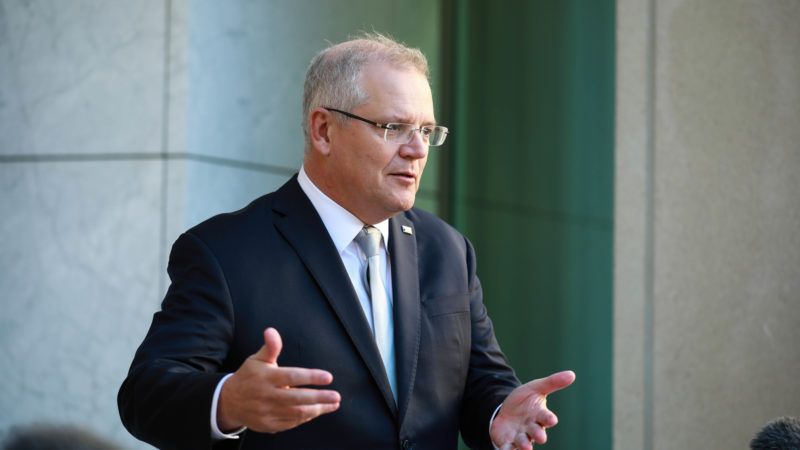Australia Offers 5-Year Visa Extensions to Students and Workers From Hong Kong
The country's response to Hong Kong residents fleeing the national security law was modest, yet still drew the ire of Chinese officials.

Australian Prime Minister Scott Morrison will allow students and workers from Hong Kong to overstay their visas, but his policy comes with limits.
Morrison announced on Thursday that Australia would suspend its extradition treaty with Hong Kong and allow the 10,000 Hong Kong students and "temporary skilled workers" currently living in Australia to apply for five-year visa extensions, after which they can apply for permanent residency.
Many Hongkongers have sought refuge abroad following the implementation of Hong Kong's new national security law, which criminalized a broad range of behavior including secession, subversion, terrorism, or collusion. Critics say that the law, backed by the Communist Party of China, has had a chilling effect on freedom of expression in the city. A day after the law was imposed, police arrested hundreds of pro-democracy demonstrators.
Australia offers two varieties of protective visas: Safe Haven Enterprise Visas (SHEVs) and Temporary Protective Visas (TPVs). In an interview earlier this month, Morrison suggested that he would consider offering SHEVs to Hongkongers needing to flee. These visas, which evolved from a United Nations-coordinated program developed in the 1990s to accommodate refugees from the Balkan wars, offer five years of temporary protection to illegal arrivals who go on to work or study in Australia. Other reports hinted that Australia may offer "Tiananmen-style" TPV visas to Hong Kong residents. These visas offered four years of protection to Chinese students in Australia at the time of the Tiananmen Square crackdown—today's TPVs offer three years.
However, the government rejected these more generous offers in its current policy. Morrison clarified that the government is not offering refugee status but seeks to attract "serious talent." Hongkongers "will have the opportunity to apply for permanent residency," Morrison says, but there is no guarantee that it will be granted. Acting Immigration Minister Alan Tudge has said current visa holders from Hong Kong will "almost certainly" be granted permanent residency if they pass character and national security exams. Unlike the Tiananmen TPVs, these visas do not offer recipients access to welfare benefits or help with finding a job in Australia.
Many Australian political leaders have suggested that the country's measures don't go far enough. Greens Party leader Adam Bandt suggested that Australia should rethink its trade arrangements: "Even if you agree with free trade agreements in general, it's time for a rethink about whether entering into a [free trade] agreement with Hong Kong is giving a tacit stamp of approval to the crackdown."
The national security exam requirement for Australian permanent residency attracted criticism from China's Ministry of Foreign Affairs spokeswoman Hua Chunying, who accused the Australian government of "undisguised hypocrisy and blatant double standards" for lambasting Hong Kong's national security law while prioritizing their own.
Morrison's proposal is one of many global responses to Hong Kong's plight. A bipartisan group of five U.S. senators introduced the Hong Kong Safe Harbor Act in June. If passed, the bill would fast-track visa applications by Hongkongers and remove lots of red tape around the admission process. A companion bill in the House would expedite skill immigration from the island.
Meanwhile, Japan is helping firms relocate outside the territory and Taiwan has already set up a government department to facilitate relocations. A sweeping offer by the United Kingdom earlier this month would offer up to 3 million Hongkongers not just visas but also permanent residency and a path to citizenship.


Show Comments (16)